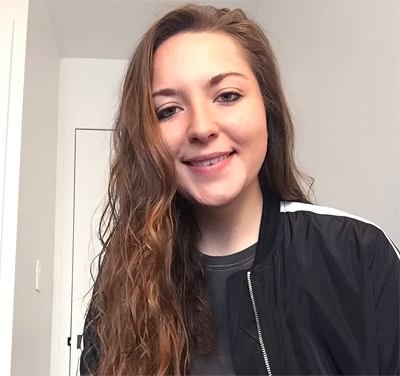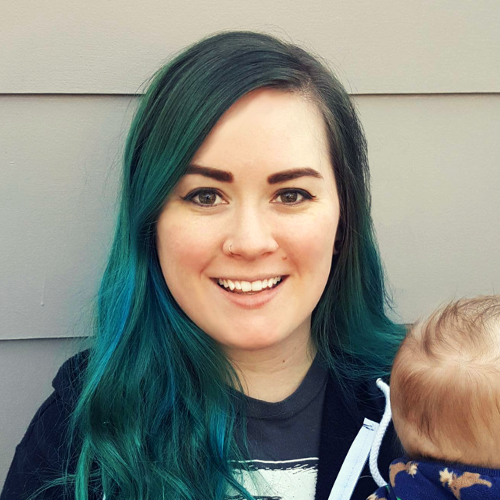Getting a high quality mixer for your podcast studio will really improve your audio quality. Depending on the mixer that you purchase, it can power audio equipment, like dynamic and condenser microphones, as well as clean up poorer sounding microphones. Mixers can also help you gain more control as you can manage input devices with faders and gains, reduce post-production time by adding effects through your mixer, and you can record several audio channels separately. That being said, choosing a mixer requires you to establish what your needs are. So, to help you out with the decision process, we've listed what to look for in mixers as well as our recommendations below.
What to Look For:
-
Number of Channels: How many microphones do you need to plug into the mixer? Think about how many different microphones you need for your average podcast episode. From there, add any other sound sources that you use, such as your phone to play music. If you are using Skype, that will be another channel. The amount of inputs as well as what kind of inputs you have matters. Are your mics XLR or USB powered? Cheaper mixers will have fewer XLR inputs, so be aware of your needs and look for mixers that meet them. Aside from the channels that you currently need, think about also buying a mixer with enough channels to grow into.
-
Aux Out or FX Send: If you have a remote co-host, you will need a mix-minus setup. This means that your co-host won't be able to hear themselves on the channel to avoid any echo, but they will hear everything else. Most mixers have an output called “Aux Out,” “FX Send,” or “FX Out“ along with a knob that will be labeled the same way.
-
Faders or Knobs: Knobs are the tall buttons that are used for things such as EQ or gain that are adjusted minimally. On the other hand, faders are the sliders that allow finer control over the levels of channels. Cheaper mixers tend to only have knobs, but many mixers have both. Faders can certainly be helpful with gaining control of your audio, but they are not necessary, so consider your own requirements for price and audio control.
-
Advanced Inline Processing Features: Some mixers give you more control, which can reduce post-production. Many mixers have equalization (or EQ), gain control, pan control, and a low-cut filter. More advanced mixers may have compression, limiter options, or effects engines.
-
Price: A good mixer will cost somewhere between $100-$300. Higher quality mixers will likely cost more, but you can certainly find a quality mixer within your budget.
Our Recommendations:
- Number of Channels: 5
- Aux Out or FX Send: No
- Faders or Knobs: Knobs
- Advanced Inline Processing Features: EQ, Gain, Pan
- Price: $59.99
This is a great mixer for solo podcasting on a budget. There are some restrictions though as this mixer only supports 15V phantom power, not 48V phantom power, which many mics require.
Mackie PROFX8V2 8-Channel Compact Mixer with USB and Effects
- Number of Channels: 8
- Aux Out or FX Send: Yes
- Faders or Knobs: Both
- Advanced Inline Processing Features: EQ, Low-Cut Filter, Gain, Pan, Effects Engine
- Price: $199.00
The Mackie PROFX8V2 is one of the best mixers you can get for under $200. The mixer has many functions, USB input and output, and a few channels to expand your podcast setup.
- Number of Channels: 12
- Aux Out or FX Send: Yes
- Faders or Knobs: Both
- Advanced Inline Processing Features: EQ, Effects Engine, Gain, Pan
- Price: $99.99
This mixer is a great option under $100. It provides many channels that you can grow into and it has many features to help you fine tune your audio.
- Number of Channels: 12
- Aux Out or FX Send: Yes
- Faders or Knobs: Both
- Advanced Inline Processing Features: EQ, Gain, Pan, Compression
- Price: $149.99
This mixer comes with lots of channels, capabilities, faders, as well as USB input and output, giving you a lot of control over your audio. It's a great mixer at a great price point.
Yamaha MG10 10-Input Stereo Mixer
- Number of Channels: 10
- Aux Out or FX Send: Yes
- Faders or Knobs: Knobs
- Advanced Inline Processing Features: EQ, Gain, Pan, Compression
- Price: $154.99
The Yamaha MG10 is a great, compact mixer with a lot of capability. If you don't need more channels and you don't mind only using knobs, this is a fantastic option.
Mackie 402VLZ4, 4-channel Ultra Compact Mixer
- Number of Channels: 4
- Aux Out or FX Send: No
- Faders or Knobs: Knobs
- Advanced Inline Processing Features: EQ, Gain
- Price: $99.00
The Mackie 402VLZ4 is great option for solo podcasting. There are of course some restrictions, such as the mixer does not have a USB input and output, but if the mixer fits your needs, you can't go wrong with a Mackie mixer.
Mackie PROFX12V2 12-Channel Compact Mixer with USB and Effects
- Number of Channels: 12
- Aux Out or FX Send: Yes
- Faders or Knobs: Both
- Advanced Inline Processing Features: EQ, Low-Cut Filter, Effects Engine, Pan, Gain
- Price: $249.00
This mixer has you covered if you need many channels as well as a lot of advanced inline processing features. The Mackie PROFX12V2 is a high quality mixer that is built to last and provides clean audio.
- Number of Channels: 12
- Aux Out or FX Send: Yes
- Faders or Knobs: Both
- Advanced Inline Processing Features: EQ, Effects Engine, Gain, Compression, Pan
- Price: $599.99
The Zoom LiveTrak L-12 comes with a large price tag, but it also comes with tons of features, including 5 headphone outputs each with their own individual customizable mix as well as a LCD screen. If you are looking for a mixer with many channels as well as lots of advanced features, this one might be for you.
Whether you are looking for a mixer to accommodate solo podcasting or a mixer to work for a podcast with several hosts or guests, one of these mixers should certainly work for you. Evaluate your podcast's current needs and consider how your podcast might grow when deciding on what mixer to purchase. If you anticipate bringing guests on your podcast in the future, you might want to pay a little more for a mixer that will work for the growth of your podcast. And, while these are some of the best mixers for podcasting out there, if these don't seem to fit your needs perfectly, search around for something that is better suited for you. There are many good mixers out there and you want to ensure that you are purchasing something that's truly valuable to you, so don't be afraid to have specific needs for your mixer. Happy podcasting!
For a full breakdown of podcast equipment for beginners, see our guide here and for more advanced podcasters, check out our Podcast Equipment Guide for Professionals.
Interested in podcasting with Live365? Join our waitlist to be the first to be notified when podcasting is available on the Live365 platform.
Discover thousands of free stations from every genre of music and talk at Live365.com. Keep up with the latest news by following us on Facebook (Live365 (Official) and Live365 Broadcasting) and Twitter (@Live365 and @Broadcast365)!
Article Image: freestocks.org via Pexels.


